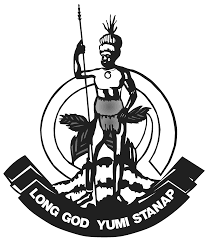Location
Multiple waves of colonizers, each speaking a distinct language, migrated to the New Hebrides in the millennia preceding European exploration in the 18th century. This settlement pattern accounts for the complex linguistic diversity found on the archipelago to this day. The British and French, who settled the New Hebrides in the 19th century, agreed in 1906 to an Anglo-French Condominium, which administered the islands until independence in 1980, when the new name of Vanuatu was adopted.
Vanuatu is a parliamentary republic.
Source: CIA World Factbook
Members:
Resources
Displaying 36 - 40 of 69Chapter 3 of Title 42 of the Pohnpei State Code - Public Trust Lands Distribution Act of 1980.
This Act concerns the distribution of land held in the public trust. The purpose of this Act is to distribute lands held in trust for the people of Pohnpei to beneficiaries of the trust who have entered upon, developed, and possessed such lands for agricultural purposes pursuant to leasehold or other use agreements issued for that purpose by the government of Japan or the Trust Territory Government. The Act sets out criteria and procedures for transfer of title in land.
Chapter 5 of Title 42 of the Pohnpei State Code - Planned Development Zone.
This Chapter concerns the development of a part of Pohnpei declared to be Planned Development Zone. It grants powers to the Public Lands Trust Board of Trustees to enter into lease and use agreements for development stated in line with the integrated development goals of the Pohnpei Government. Development shall be limited to coastal structures for fisheries and tourism.
Chapter 10 of Title 42 of the Pohnpei State Code - Land Use Designations.
This Chapter empowers the Public Lands Trust Board of Trustees to sell, lease or dedicate for public purpose specified lands held in trust by the Board for specified purposes. The Chapter specifies for each piece of land conditions or restrictions applying to the power of the Board to sell, lease or dedicate to public purposes such land. The Chapter defines “active use” by the Government. Land shall revert to the Board if such active use of the Government ceases.
Chapter 2 of Title 46 of the Pohnpei State Code - Non-judicial Foreclosure.
This Chapter sets out conditions and procedures for non-judicial foreclosing on the property of a debtor by the creditor. The Chapter sets out when and how a creditor may take possession of the property with or without notice, but only if this can be done without breach of the peace. The Chapter sets out procedures for the sale of the property.
Chapter 3 of Title 49 of the Pohnpei State Code - Probate of Small Estates.
This Chapter provides rules relative to the probate of inheritance of small estate. It sets out procedures for and content of complaints regarding the transfer of decedent’s property to beneficiaries and creditors. There is also a procedure if debts exceed the value of assets to be inherited. The transferee shall be personally responsible for any property received by him or her under any order issued pursuant to this Chapter, and any party claiming an interest in such property may, after demand, maintain, within a specified period, an action against the transferee.


